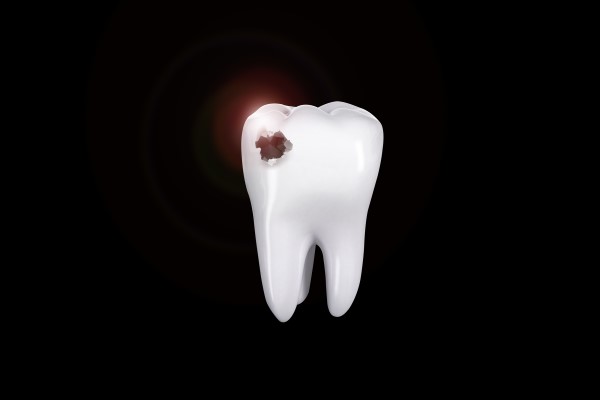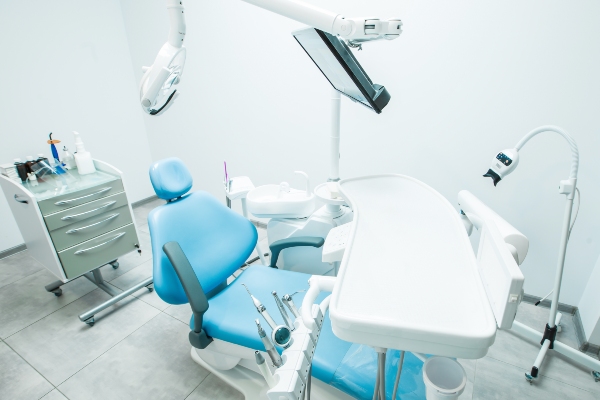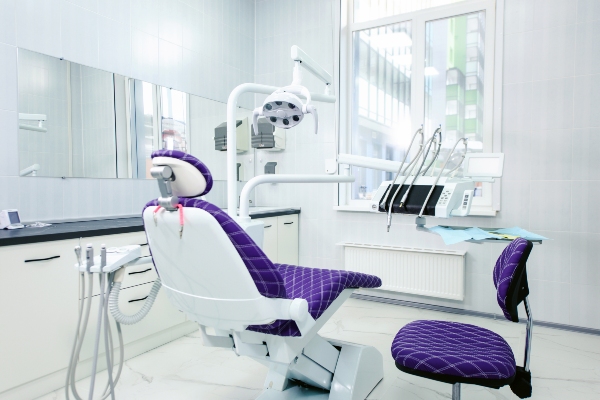3 Early Warning Signs of a Cavity

A cavity is one of the symptoms of tooth decay and can lead to significantly worse dental issues, like an infection, when left treated. Cavities can be reversed with fluoride treatments early on, but spotting it at that stage can be difficult because there are rarely any symptoms. As the cavity progresses, symptoms like toothaches might begin to emerge.
Bacteria that live in the mouth create the acids that lead to tooth decay. They do this by consuming sugars left in the mouth after meals and excreting acids that damage teeth and their structures.
Warning signs that you might have a cavity
Patients might be wondering if they have any cavities on their teeth. Let us take a closer look at common symptoms.
1. Holes forming on teeth
This is the clearest way to determine if a patient has a cavity. These holes are the result of acids in the mouth eating into a tooth. A cavity will continue to expand until it leads to the total loss of the tooth or leaves the tooth’s pulp chamber compromised, putting it at risk of being infected.
Fortunately, dentists can fix cavities by sealing the hole with dental filling. The filling material prevents acids from getting into the hole, halting decay in its tracks. It also happens to be one of the most affordable dental treatments provided by dentists, so most patients can get treatment for a cavity once detected.
2. Toothaches
Toothaches are common symptoms of cavities. A person might feel a sharp pain when they try to bite down on something, when they drink sweet things, or when they brush the affected tooth. The pain is caused by the decay getting past the enamel, leaving the more delicate dentin exposed to irritants in the mouth, like debris, bacteria, and acids.
Dentists typically address this by removing decayed material from the tooth and closing it up with filling. A local anesthetic is administered, so there is no pain involved.
3. Weird taste in the mouth and bad breath
An untreated cavity can end up opening up a tooth’s pulp chamber. This is the area that houses the tooth’s blood vessels and nerves. It is normally sealed off from the rest of the tooth, but the chamber can be opened up by decay or trauma.
This leaves the soft tissues there exposed to the bacteria causing the decay. It often leads to a bacterial infection. The waste products created by these microorganisms can lead to bad breath and an unpleasant taste in the mouth.
A root canal is typically performed to treat an infected tooth. The procedure involves removing the tooth’s nerve and blood vessels, then sealing the tooth with gutta-percha.
Get fast treatment for cavities
Do not wait until a cavity leads to other issues. Call or visit our Delray Beach clinic to set up an appointment with our dentist.
Request an appointment here: https://www.palmbeachdentistry.com or call Palm Beach Dentistry at (561) 225-2057 for an appointment in our Delray Beach office.
Check out what others are saying about our dental services on Yelp: General Dentist in Delray Beach, FL.
Recent Posts
General dentists spend a significant portion of their time performing preventative dental treatments. These treatments reduce the odds of common dental issues, like tooth decay and gum disease, from developing in the future. Preventative care saves patients time and money by making it less likely that they will develop severe dental problems that call for…
A general dentist can relieve a toothache after a proper assessment. This type of dental problem is often accompanied by swelling. It may even occur with a migraine, fever, or earache. Tooth pain needs immediate treatment. Here are the details on what a general dentist can do for a toothache.Each toothache is different. That is…
One aim of general dentistry is to make the patient’s experience as positive as possible. A dentist who is good at their job will achieve this feat in two ways. First, they will use proactive, preventative measures that keep intensive procedures to a minimum. Second, the dentist will use every tool at their disposal to…
You can have restorative dental procedures from your general dentist to replace defective or damaged parts of your teeth. Restorative procedures are used to replace broken or missing teeth and are among the most common treatments and procedures that dentists handle regularly. They restore the function and aesthetics of teeth and supporting structures while helping…


